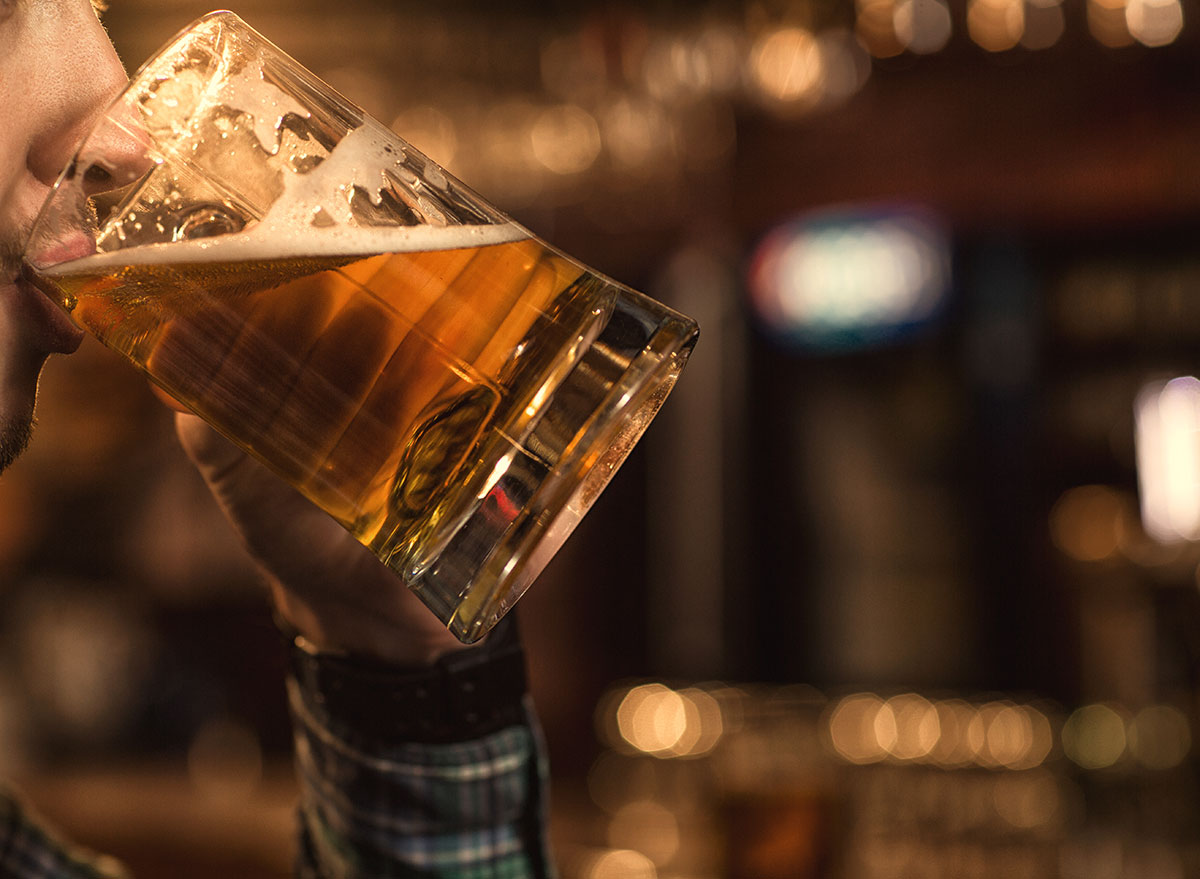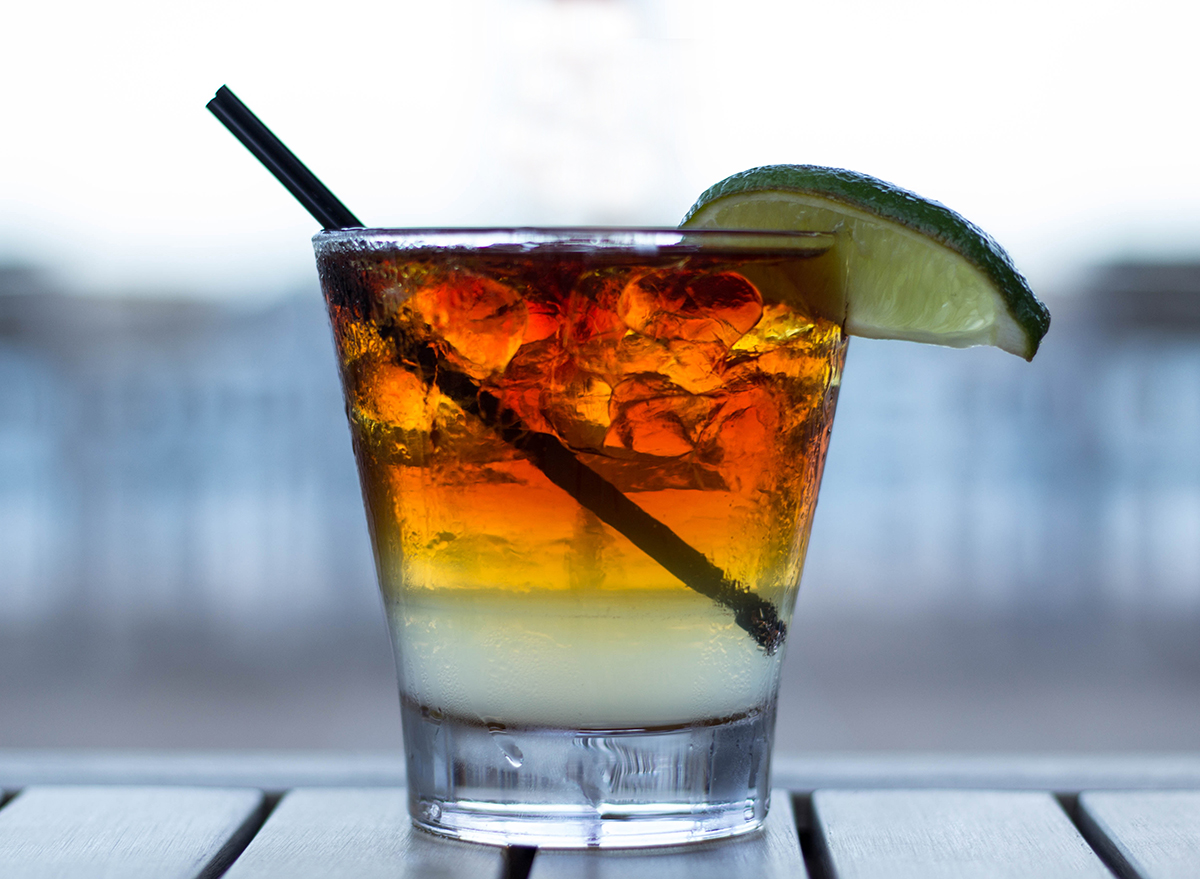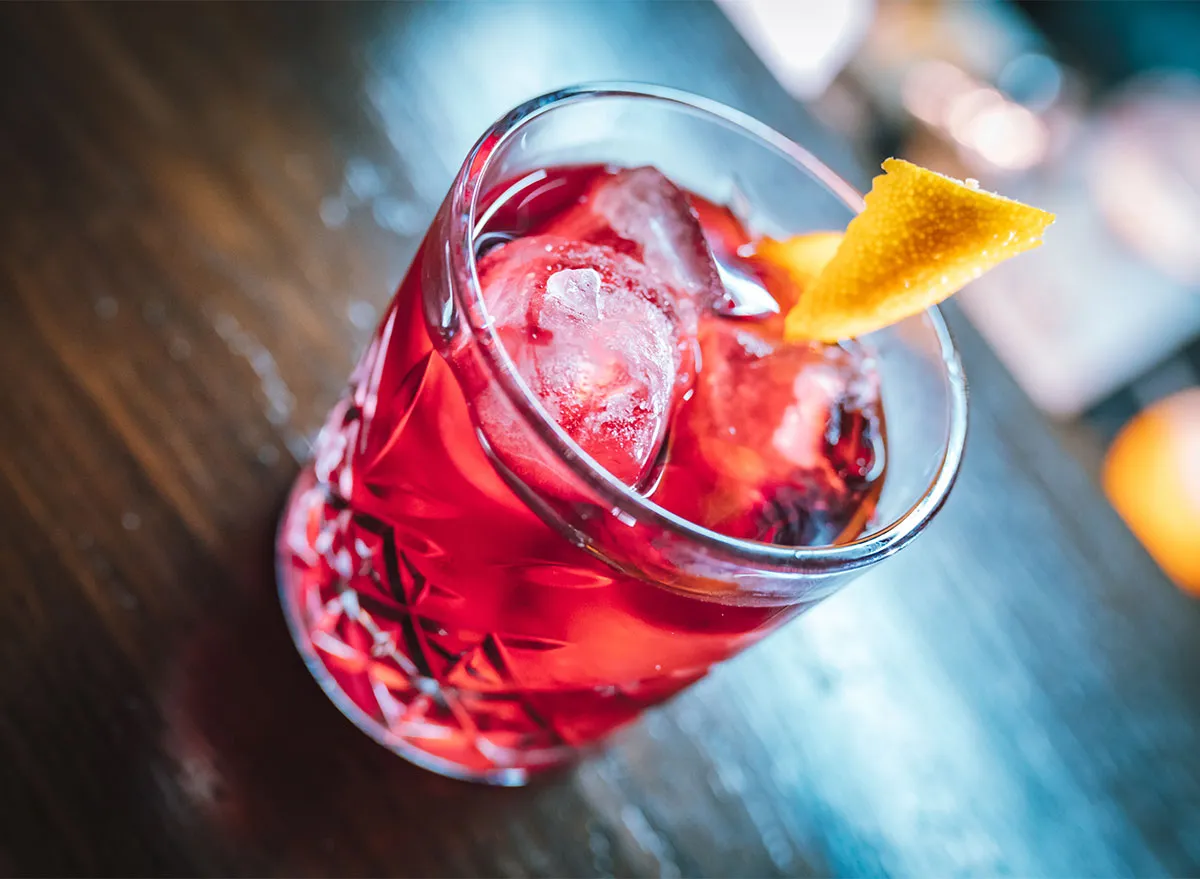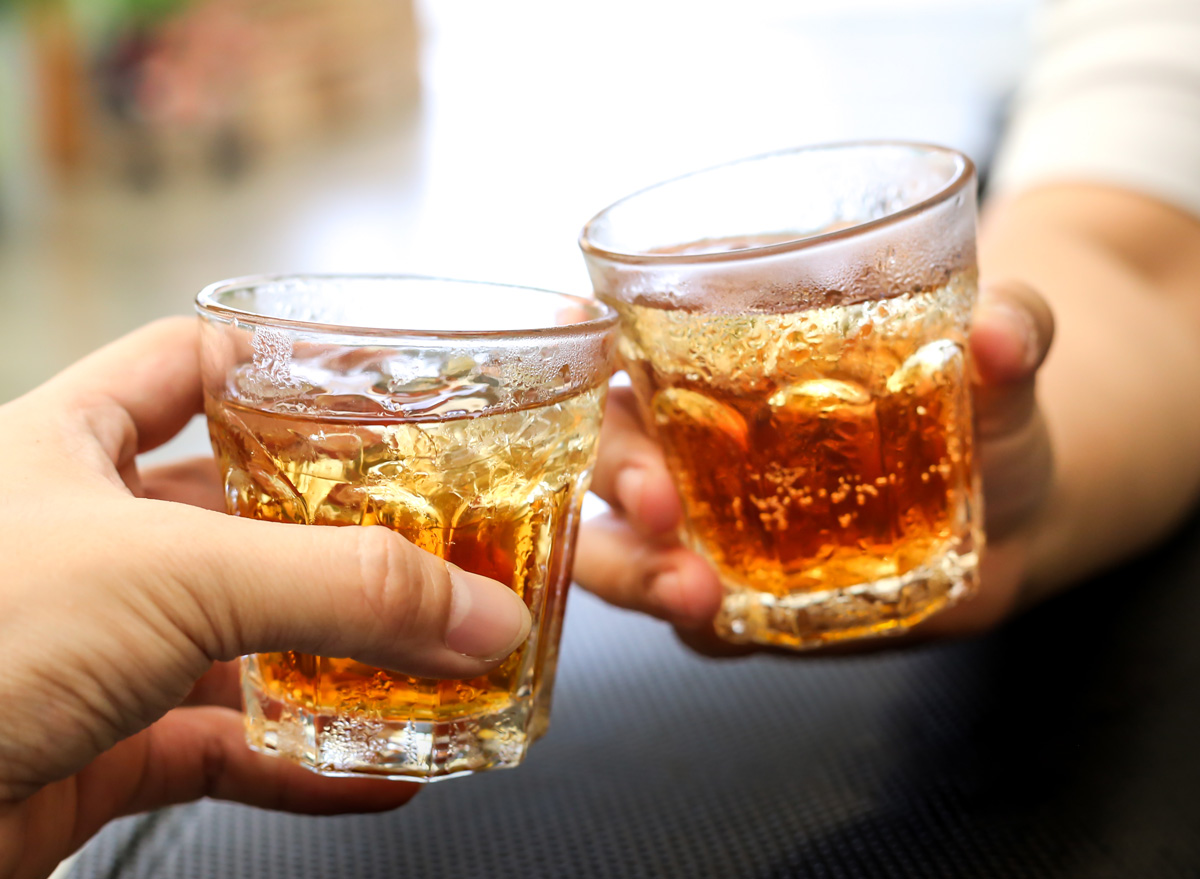Surprising Side Effects of Not Drinking Alcohol, Say Experts

Despite being a popular social pastime, with nearly 70% of the American population enjoying alcohol on an annual basis, drinking alcohol is the leading risk factor for premature illness and contributes to 3 million deaths each year, according to the World Health Organization. So, what happens if you give it up? While speaking with experts, we discovered some of the most surprising side effects of not drinking alcohol. And for more healthy diet advice, check out Eating Habits to Lose Abdominal Fat As You Age, Say Dietitians.
You’ll have more restorative sleep.

“When you have any type of central nervous system depressant like alcohol, you don’t typically reach that restorative REM sleep,” explains Jessica Hoffman, LADC, a Licensed Alcohol, and Drug Counselor at Hazelden Betty Ford, the nation’s largest nonprofit treatment provider.
Rapid eye movement sleep or REM is the deepest sleep you can have. It is the most restorative sleep, when your mind and body recover and balance themselves after a long day, but is often unattained when drinking since alcohol is a REM suppressant. On the other hand, if you refrain from drinking, you can have longer and less disruptive sleep. “[When you don’t drink alcohol], you are going to be able to have a better quality of sleep, which is critical for almost every brain function we have,” says Hoffman. For more ways to improve your sleep, consider avoiding The Worst Foods for a Good Night’s Rest, According to Sleep Experts.
You’ll lower your risk of developing certain cancers.

Alcohol consumption is one of the most avoidable risk factors for cancer. Alcohol use accounts for about 6% of all cancers and 4% of all cancer deaths in the United States, according to the American Cancer Society. “Your pancreas and liver, areas of your body constantly taxed by alcohol, are the most at risk for developing cancer,” explains behavioral health expert Robin Barnett, EdD, LCSW, a Licensed Clinical Social Worker and author of Addict in the House.
“Your liver, which clears out toxins from your body, is actually being overworked when you drink. If the liver is overworking, trying to get rid of the alcohol, then it slows down the rest of your metabolism and immune system because it is focusing on getting this alcohol toxin out of your body,” says Barnett. When the body is constantly under a state of stress, it may make the body more vulnerable to developing illnesses like cancer. If you do not drink, you may lower your risk of developing these types of cancers as compared to someone who does consume alcohol regularly.
Your immune system may be more resilient.

Your immune system works to defend your body against contagious diseases. Alcohol consumption can suppress the immune system and its response to warding off illness, increasing chances for developing infectious diseases. “Alcohol lowers the body’s ability to react to outside threats,” says Barnett. “For 24 hours after someone consumes alcohol, their immune response decreases,” making the body vulnerable to illnesses. Not consuming alcohol, as well as avoiding These Foods Can Weaken Your Immune System, Say Experts, can keep your immune system from weakening, increasing your body’s ability to fight off viruses and other types of illnesses.
It can be easier to maintain a healthy weight.

When people drink, it can be easy to overlook the calories consumed through alcohol, which are tacked on to your daily caloric intake. On average, American adults under the age of 50 consume 150 calories from alcohol every day, according to a BMC Public Health study. If you don’t drink, you simply won’t consume those calories, which would otherwise amount to a 15-pound weight gain over the course of a year.
Alcohol can promote weight gain not only by adding calories to your daily intake but also by causing overeating. An animal study published in Nature Communications found that when mice were given alcohol, neurons in the brain that drive hunger were stimulated. Humans have these same AGRP neurons that promote intense hunger when stimulated even when the body is not starving. By not drinking alcohol, you effectively eliminate this potential overeating trigger and may find it easier to lose weight.
You may benefit from a lower risk of cardiovascular diseases.

Consuming alcohol may put you at a higher risk of developing cardiovascular diseases. “You might be more vulnerable to developing things like heart disease and diabetes because alcohol has been linked to side effects of high blood pressure and increased heart rate,” said Hoffman. Many alcoholic beverages also contain high amounts of sugar. “A lot of the times we don’t always realize the amount of sugar that we metabolize when we drink alcohol,” commented Hoffman. High glucose levels can lead to the development of cardiovascular-related diseases. When you abstain from drinking, you are decreasing your risk for future cardiovascular problems by lowering your blood pressure, decreasing your triglycerides, and lessening your chance of heart failure. (Related: Surprising Side Effects Wine Has On Your Heart, Says Science.)
Your liver may be healthier.

Alcohol is a toxin that the liver works to clear out of your body by metabolizing it. “For men, drinking 15 drinks a week or more, and women, 8 drinks a week or more, increases the chances of fatty liver and cirrhosis of the liver,” warns Barnett. The chances of cirrhosis and fatty liver decrease about 10% when somebody stops drinking. “If you stop drinking before there is significant damage, the liver does regenerate. Once it gets to the point of liver cirrhosis, which means the liver starts to die, only the areas that were not totally killed by the alcohol will start to heal,” explained Barnett. When you stop consuming alcohol, you remove the stress on your liver, allowing it to begin healing itself. Learn more about alcohol’s effect on your liver by reading Here’s What Happens to Your Liver When You Drink Alcohol.









